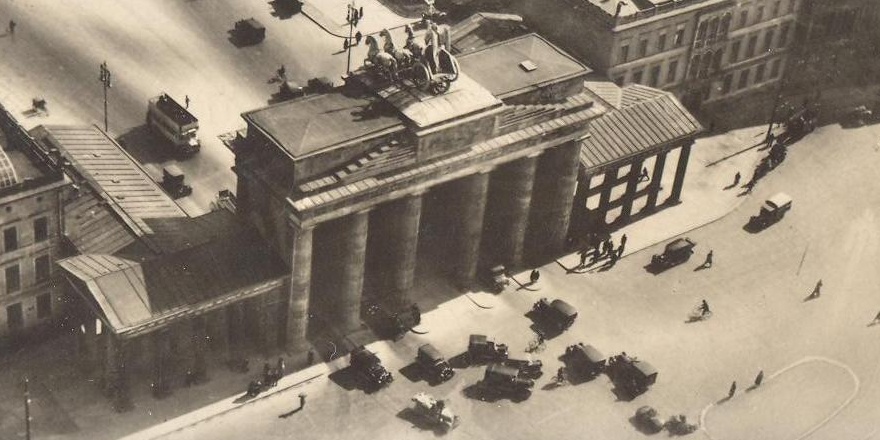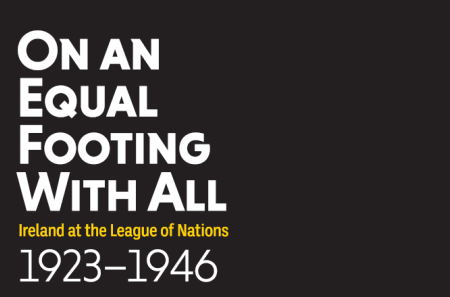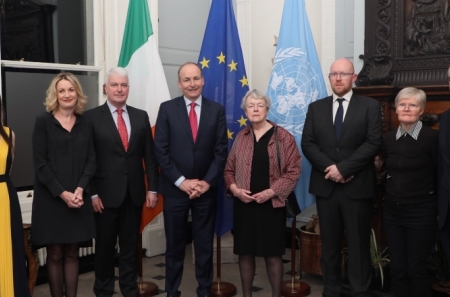
Christmas in Berlin, 1939
20 December 2018Read an Irish diplomat's accounts of Christmas (and New Year) in the German capital months after the outbreak of the Second World War.
Christmas is nearly upon us, so we looked back through the diplomatic reports published by DIFP for any accounts of Christmas overseas and the most striking ones that we found came from, of all places, Berlin in the Second World War.
As a neutral state, Ireland retained its diplomatic missions in Europe throughout the Second World War. One consequence is that the reports of Irish diplomats offer a unique perspective on both the conduct of the war and the realities of life on the ground from within belligerent and occupied Europe. Ireland had established diplomatic relations with Germany in 1929, and the Irish representative in Germany during the war was charges d'affaires William Warnock, originally from Dublin. In December 1939 and January 1940 he provided Joseph Walshe, the secretary of what was then the Department of External Affairs, with two detailed accounts of Christmas in Berlin months after the outbreak of the war.
His report of 14 December 1939 related that rationing was being relaxed slightly in the run-up to Christmas (with spices and stockings being in demand), while at the same time the war was 'having a peculiar effect on Christmas shopping. Money is being freely spent'. Sales of books 'have already reached record figures', though 'sports and general outfitters, who in the ordinary way would be doing a busy trade in skiing clothes, are doing very badly'. There was apparently a degree of 'grumbling' about the prospect of 26 December not being designated a holiday, due to the requirements of the war, but the German authorities had assured the public that their holiday was safe.
This was the view before Christmas. Writing to Walshe again on 3 January, Warnock confirmed that 'the Christmas dinner suffered on account of the rationing', but he had still enjoyed a hearty meal ('an excellent helping of goose') in a restaurant on Christmas day. That said, the 'usual merry-making in the streets on New Year's Eve had to be abandoned on account of the "black-out", and severe warnings were given by the police against over-indulgence in alcohol'.
Warnock's accounts of the festive season in the capital of the Third Reich hint at the fact that, at this juncture, Nazi Germany was successfully prosecuting its war across Europe. The picture he painted at Christmas 1939 was of a society that was starting to feel the pinch, so to speak, but which seemed quite far from being under intolerable strain at this time; the war had not yet come to German territory, after all. As the conduct of the war turned against Germany and its allies, however, Warnock's reports came to reveal the stark realities of the pressure brought to bear upon Germany, as it slowly but surely began to lose the war that it had embarked upon.
Warnock remained in Berlin until 1944 and enjoyed a lengthy career as a diplomat, later serving as ambassador to West Germany, Switzerland, India, Canada and the United States. His wartime reports from Berlin are available online, including those of 14 December 1939 and 3 January 1940 mentioned above.
Image: Berlin's Brandenburg Gate, pictured in the 1930s (Bulgarian Archives State Agency BASA-237K-1-351-86, via Wikipedia Commons).



